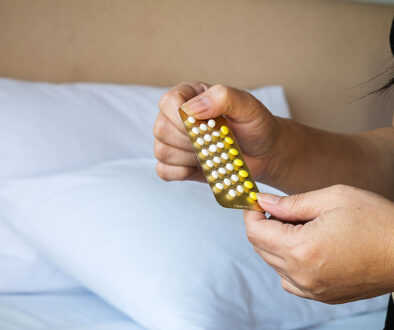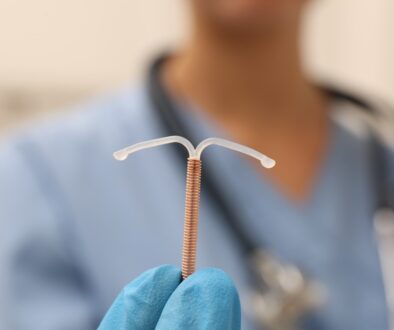Which Birth Control Causes Weight Gain? Your Choices
You’ve worked hard to stay healthy. You watch what you eat, you exercise regularly, and you try to maintain a healthy weight.
Or maybe you’re facing some challenges relating to your BMI, a health indicator that takes your weight and height into consideration.
No matter which of these categories is appropriate for you, you know one thing for sure:
You don’t want to have children—or you don’t want to have them just yet.
Birth control opens up an entirely new set of dilemmas. Which birth control causes weight gain? Which method is best for you?
We understand that you may be concerned about maintaining a healthy weight, and which birth control causes weight gain is an important consideration. We’ll review your choices and provide the information you need to make an informed decision.
As your leading gynecologists in Raleigh, we have helped Triangle area women evaluate their birth control options to find what is right for them. Just schedule an appointment and we’ll be glad to help you.
Which Birth Control Causes Weight Gain? Options for You to Consider
First, the good news: Most forms of birth control do not cause weight gain. IUDs and the pill do not generally cause women to gain weight. In fact, it’s a common myth that all birth control causes weight gain.
However, the progestin hormonal injection (the “birth control shot”)—known by the brand name Depo-Provera—can cause weight gain.
We do want to make it clear that individuals may have different side effects from medications or birth control. While studies show that most forms of birth control do not cause weight gain, we recognize that there may be occasional exceptions.
Will an IUD Cause Me To Gain Weight?
No, an IUD does not cause weight gain.
How Can I Avoid Weight Gain While on Birth Control?
As we mentioned earlier, most birth control does not cause you to gain weight.
But if you choose to go with the “birth control shot,” the one method that can lead to weight gain, we’ll offer a few healthy tips on how to maintain a healthy weight while you’re taking that form of contraception.
We know you’ve heard the mantra of diet and exercise countless times—so we won’t delve into them here. Instead, we’ll offer some tips you may not have considered before.
Check Your Weight Regularly
Don’t become obsessed with the scale, but realize that it’s important to keep track of what you weigh. Some research studies demonstrate that those who regularly weigh themselves tend to lose more weight.
Of course, it’s important to realize that the scale doesn’t tell the whole story. If you’re maintaining a healthy weight, you may notice that you have more energy, you sleep better and you have more muscle definition.
Don’t Give Up Your “Comfort Foods”
This may sound counter-intuitive. A healthy diet means you have to eliminate all of your favorite treats, right?
Not necessarily. You can still enjoy them, just do so sparingly. Eat them less often, and –if there is not a lower-calorie version– eat smaller portions.
Keep a Food Journal
According to the American Heart Association, those who kept track of what they ate daily lost twice as much as those who did not.
There are dozens of free apps that help you keep a log of what you’re eating. We recommend trying some of them to see which one is right for you.
Get a Good Night’s Sleep
Did you know that getting the right amount of shut-eye can help your weight loss efforts? Research shows that disturbed sleep patterns make it difficult to lose weight and to maintain a healthy weight.
Some tips for having a restful night include:
- Stick to a regular bedtime
- Avoid screens before going to bed–this includes TV, phones, and tablets
- Get regular exercise (just not too close to bedtime)
- Create a restful, relaxing environment
- Avoid daytime napping
Associates in Women’s Healthcare Has the Birth Control Option That’s Right For You
Birth control doesn’t mean you’ll automatically gain weight—in fact, in most cases, it has no impact on your weight at all. Of course, you should still practice healthy habits of exercising regularly and eating nutritious food.
We know when it comes to birth control, today’s women have several options. Whether you decide on an IUD, the pill, or another form of contraception, we want to be a partner in your care. Just contact us for an appointment.
The content within this article and others on this website is only for educational purposes and should not be considered as medical advice. For any questions or concerns, please consult with your healthcare provider.





